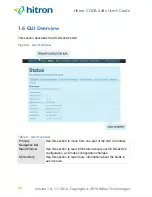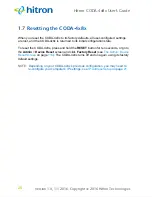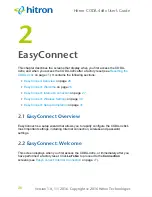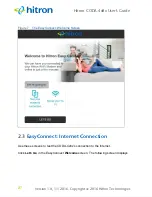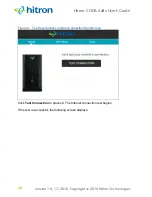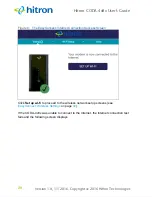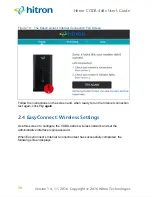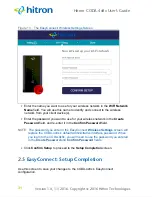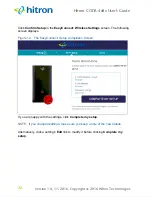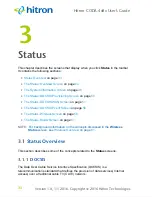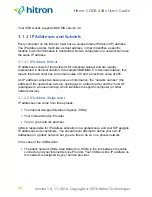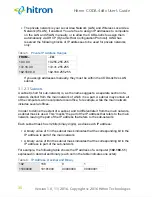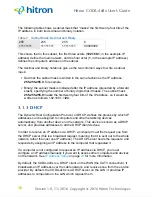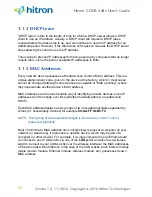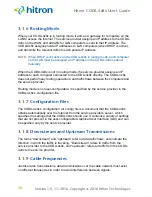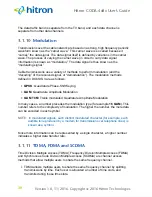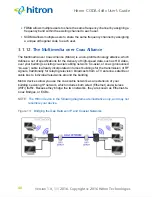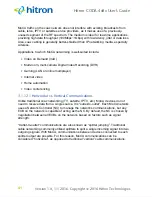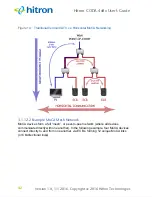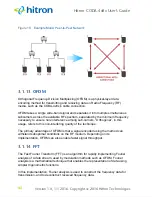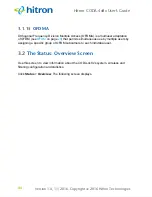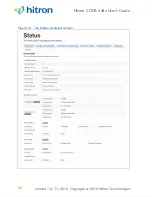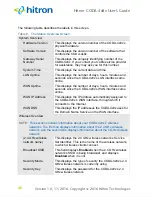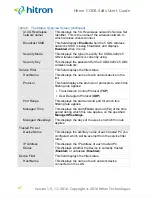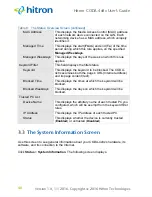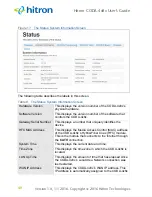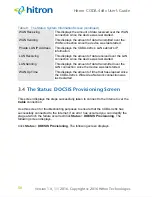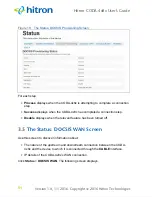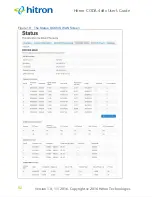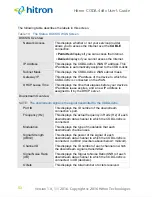
Version 1.0, 11/2016. Copyright 2012 Hitron Technologies
38
Version 1.0, 11/2016. Copyright 2016 Hitron Technologies
38
Hitron CODA-4x8x User’s Guide
3.1.6
Routing Mode
When your CODA-4x8x is in routing mode, it acts as a gateway for computers on the
LAN to access the Internet. The service provider assigns an IP address to the CODA-
4x8x on the WAN, and all traffic for LAN computers is sent to that IP address. The
CODA-4x8x assigns private IP addresses to LAN computers (when DHCP is active),
and transmits the relevant traffic to each private IP address.
NOTE:
When DHCP is not active on the CODA-4x8x in routing mode, each computer
on the LAN must be assigned an IP address in the CODA-4x8x’s subnet
manually.
When the CODA-4x8x is not in routing mode, the service provider assigns an IP
address to each computer connected to the CODA-4x8x directly. The CODA-4x8x
does not perform any routing operations, and traffic flows between the computers and
the service provider.
Routing mode is not user-configurable; it is specified by the service provider in the
CODA-4x8x’s configuration file.
3.1.7
Configuration Files
The CODA-4x8x’s configuration (or config) file is a document that the CODA-4x8x
obtains automatically over the Internet from the service provider’s server, which
specifies the settings that the CODA-4x8x should use. It contains a variety of settings
that are not present in the user-configurable Graphical User Interface (GUI) and can
be specified only by the service provider.
3.1.8
Downstream and Upstream Transmissions
The terms “downstream” and “upstream” refer to data traffic flows, and indicate the
direction in which the traffic is traveling. “Downstream” refers to traffic from the
service provider to the CODA-4x8x, and “upstream” refers to traffic from the CODA-
4x8x to the service provider.
3.1.9
Cable Frequencies
Just like radio transmissions, data transmissions over the cable network must exist
on different frequencies in order to avoid interference between signals.

